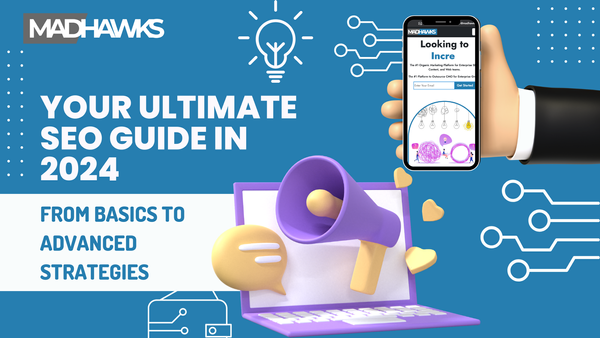The Four Stages of Making Money Every New Professional Should Know


Most of us grow up with little to no education about wealth, often falling into serious misconceptions that trap us in poverty. Many people’s flawed thinking boils down to two main misconceptions: either believing that ten times the hard work will bring superior returns, or constantly fantasizing about a magical opportunity that will launch them into financial freedom. The first approach is basically a dead end, and the second is extremely unlikely. The truly effective method is to level up your money-making game step by step. That's right, there are four distinct stages in the process of making money.
- Selling Time and Labor for Money: At this stage, you're essentially a cheap cog in the machine.
- Earning Through Products or Services: Here, you become a super individual who can directly transact with the market.
- Making Money Using Business Systems: At this point, you're a builder of resources.
- Earning from Multiple Business Systems: Now, you've evolved into a high-dimensional integrator.
Let's dive into the first stage—making money by selling your time and labor. This is the kind of money-making logic we've been taught since we were kids: you need a job, you need to work, otherwise, there's no income. But the truth is, working for someone else will never make you rich. Why? From a socio-economic perspective, companies exist to help people who can't directly trade with the market. For example, if my profession is architectural design and I'm fresh out of college wanting to design a skyscraper, I can't just offer my services directly to the market. No one will pay attention to me because I have no credibility. People will wonder, "Who are you? Why should we trust you?"
This is where companies come in. Design firms and architecture offices, with their established portfolios, can easily gain trust and secure projects. They then distribute these projects to you, making them like a middleman. They deal directly with the market and acquire customers. Essentially, your paycheck isn't from the company, but from the market, filtered through many layers before it reaches you. It goes through investors, shareholders, executives, directors, managers, and finally, a small portion trickles down to you.
That's why when people talk about wanting a million-dollar salary, it means they need to generate at least ten million dollars in profit for the company. If you want more income, there's only one way: move up the distribution chain, or better yet, break free from being allocated and become the one doing the allocating.
In the working world, your job consumes all of your best hours in a day. Your peak energy and prime physical condition are taken, leaving you with the worst, most exhausted time of your day. You’ll find that after a long day of work, you’re too tired to do anything else. It’s like you’re constantly putting out fires, juggling five balls in the air like a clown, terrified one will drop and you’ll lose your job. As a clown, you’re also anxious about not performing well enough to please your boss, so you exhaust yourself with makeup and performances, leading to burnout and a loss of self.
You’re also dealing with complicated relationships, household emergencies, a tricky landlord, and competition from colleagues. The balls you’re juggling keep multiplying, and you become more overwhelmed and anxious—this is known as the scarcity trap. To compensate for this massive drain, you might try to reward yourself with entertainment and shopping to fill the void and find some happiness. However, this leads to the consumerism trap, where excessive, unreasonable spending pushes you further into the cycle, forcing you to continue working without time to think about alternatives like starting your own business. You might wonder how you could even start a business when you can’t save $2,000 a month, and stopping work might mean not having food or a place to live next month.
This reinforces your belief that you need to be the most obedient cog in the system. Eventually, you notice newer cogs earning higher salaries, but you’re afraid to ask for a raise because you’re older and feel fortunate just to keep your job. Over time, you see older cogs being replaced by cheaper, newer ones, and more parts become obsolete with the advent of new, cheaper, more efficient machines like AI. If this is your career path, anxiety is inevitable because the end is predictable, and wishful thinking won’t help.
In the first stage of money-making, your options are limited: either climb the corporate ladder to gain more influence during the distribution of profits, or improve your skills and move to a more profitable company, becoming a more efficient cog in a better machine. But you’ll soon realize this isn’t safe either because as long as you’re a cog, you can always be replaced by a cheaper one. It’s only a matter of time.
Some might think, “I’ll start my own business and climb to the top, becoming the allocator.” However, more than 99.99% of people aren’t ready for this, and entrepreneurship often leads to unemployment.
What’s the Real Path to Success?
So, what's the genuinely effective path? It's about developing two crucial abilities while you're still in the working phase, leveraging your current job to prepare for future entrepreneurship. What are these two abilities? They are the foundational skills in business: product development and marketing. With these skills, you can move into the second stage of making money, which involves earning through products and services.
Building Product Skills
Product skills mean understanding what people need and how to create something valuable that meets those needs. This involves:
- Identifying Market Gaps: Learn to spot what’s missing in the market or how existing products can be improved.
- Design and Development: Acquire skills to design and develop a product that people want.
- Quality Control: Ensure your product consistently meets the standards and expectations of your target audience.
Developing Marketing Skills
Marketing skills are about learning how to get your product in front of people and persuade them to buy it. This includes:
- Understanding Your Audience: Know who your customers are, what they want, and how they think.
- Branding and Positioning: Create a strong brand identity and position your product uniquely in the market.
- Sales Techniques: Master both traditional and digital sales methods to effectively convert interest into purchases.
Transitioning to the Second Stage
Once you’ve developed these two core skills, you’ll be ready to transition to the second stage—making money through products and services. At this stage:
- Become a Super Individual: You’re no longer just an employee; you’re someone who can create value directly for the market.
- Direct Market Interaction: You can engage directly with customers, understanding their needs and delivering solutions.
- Increased Earning Potential: Your earning potential skyrockets because you’re now in a position to capture more of the value you create.
Practical Steps to Prepare
While still employed, start small:
- Side Projects: Work on small projects or freelance gigs that allow you to practice your product and marketing skills.
- Learning and Development: Invest time in courses, workshops, and books that help you develop these skills.
- Networking: Connect with other entrepreneurs and professionals who can offer advice, support, and potential partnerships.
By building your product and marketing skills now, you’re setting the foundation for future success. When you eventually decide to start your own business, you’ll be equipped with the essential abilities needed to thrive. This proactive approach ensures you’re not just another cog in the machine but someone who can create and capture value, paving the way for greater financial freedom and fulfillment.
Becoming a Market-Ready Superstar: The Real Path to Wealth
To truly level up your earning potential, you need to become a market-ready superstar, capable of directly trading with the market. There's a great quote in the book "The Almanack of Naval Ravikant" that says, "The fundamental principle of acquiring wealth is to productize yourself." This means finding your strengths, creating value for society, solving problems for others, and transforming these abilities into scalable products or services. This way, you can sell the same time to different people, drastically improving your wealth efficiency and transitioning your income model to a higher level.
Productize and Sell
The two crucial elements here are productization and sales, corresponding to your abilities to create products and market them. This is why most CEOs of major tech companies come from a product management background—they excel in understanding business principles, spotting user needs, and creatively offering solutions. Similarly, why do influencers and internet celebrities make so much money from short videos and live streams? Because they have exceptional marketing skills, knowing how to drive sales through compelling content.
Once you master these skills, you can directly engage with the market, solving user problems or selling your products without relying on a corporate intermediary. Although you’re just one person, you function like a mini-enterprise. The difference between you and a large company is merely scale. Therefore, your career focus should be on developing product and marketing skills rather than workplace advancement techniques or pleasing your boss.
Finding Your Niche
Naval also highlights the importance of finding your niche. Your niche is something you do effortlessly, while others struggle to achieve the same. Reflect on your life to identify these unique strengths. If you find one, that’s the direction to pursue. If not, gain more experience in various jobs to discover this ability.
When earning through products and services, choosing the right market is crucial. You’ll face a key decision: whether to serve wealthy individuals who pay higher prices but are fewer in number, or the general public with limited spending power but in larger numbers.
Starting with the Wealthy
Here’s some honest advice: if you’re new to this second stage of income generation, consider starting by serving wealthy clients. Economically, this means entering industries associated with wealth redistribution, where clients are less price-sensitive. With strong professional skills, you can earn your initial capital from them.
Some might argue that targeting the general public with low-margin, high-volume sales can also be lucrative. While the logic holds, the reality is more challenging. This game requires immense leverage, such as strong influence and substantial resources. For beginners, this high-level game might be too daunting.
Practical Steps to Transition
- Develop Product Skills: Learn to identify market needs, design products, and ensure consistent quality.
- Hone Marketing Skills: Understand your audience, build a strong brand, and master sales techniques.
- Start Small: Engage in side projects or freelance work to practice these skills.
- Invest in Learning: Take courses, attend workshops, and read extensively to build your knowledge.
- Network: Connect with other professionals and entrepreneurs for support and opportunities.
By focusing on product and marketing skills, you’ll prepare yourself to bypass traditional job structures, directly engage with the market, and significantly increase your income potential. This approach sets you up for long-term success, allowing you to move beyond being just another replaceable cog in the corporate machine.
Leveling Up: From High-Value Clients to Building Business Systems
To illustrate the difference between serving high-value clients and the general public, imagine a wealthy client paying you $10,000 for a service. In contrast, an average person might only pay $10. To match the income from one wealthy client, you’d need 1,000 average clients. The challenge lies in acquiring those 1,000 clients, which requires significant effort and resources—something most beginners lack.
Increasing Value Concentration
When starting, it’s often more practical to increase the concentration and value of your offerings rather than trying to scale. This means focusing on high-value clients to achieve a breakthrough from zero to one in wealth accumulation. To move beyond this stage and generate even greater income, you must learn to leverage various business systems. This is the third stage: earning money by building a business system.
What is a Business System?
A business system means starting your own company, hiring people to work for you, developing products, securing funding from venture capitalists or angel investors, and creating partnerships to expand your market reach. You might also use your personal brand to promote your company’s products. Building such a system involves three critical types of leverage: labor, capital, and media.
- Labor Leverage: This is the oldest form of leverage—hiring people to work for you. While it might impress your parents to see you as a big boss, labor leverage is the least efficient. Historically, plantations, factories, and assembly lines have relied on labor leverage. However, managing large numbers of people is complex and fraught with risk, as human resources are inherently unstable and unpredictable. In the AI era, companies with just a few people can generate profits that previously required thousands. Thus, labor leverage has become somewhat outdated, with AI significantly replacing traditional labor.
- Capital Leverage: This type of leverage involves using money as a production tool to generate higher returns. Capital grows much faster than labor income and is favored by the wealthy and elite. However, obtaining capital leverage is challenging for most people. Successful entrepreneurs who secure funding typically have strong backgrounds, such as degrees from prestigious universities, experience as executives in major companies, or products already validated by the market. This makes capital leverage inaccessible for many beginners, although it might become relevant later in your journey.
- Media Leverage: This involves using content creation, social media, and other forms of media to scale your business. In the modern era, media leverage is extremely powerful because it allows you to reach a large audience with minimal resources. Influencers, YouTubers, and online marketers use media leverage to build brands and drive sales effectively.
Practical Steps to Build a Business System
- Hire Strategically: Start by hiring a small, skilled team that can handle key business functions.
- Secure Funding: If possible, seek investment from venture capitalists or angel investors to scale your operations.
- Develop Partnerships: Form strategic partnerships to expand your market reach and distribution channels.
- Leverage Media: Utilize social media, content marketing, and personal branding to promote your products and services.
By understanding and applying these types of leverage, you can build a robust business system that multiplies your earning potential and positions you as an entrepreneur. This shift allows you to move from being a high-value individual contributor to someone who generates wealth through a scalable and efficient business model.
The Power of Media and Product Leverage: A Game Changer for Ordinary People
The third type of leverage, media or product leverage, is the most accessible for ordinary people. This includes coding an app, creating short videos, or producing content as a media influencer. Unlike labor leverage, media and product leverage have minimal marginal costs. This type of leverage has been a significant wealth creator in the past decade, especially in the internet and mobile internet era.
The Potential of Media and Product Leverage
Media and product leverage offer immense scaling potential, comparable to capital leverage. In the AI era, these opportunities are even more accessible. For instance, AI can enable people who don’t know how to code to develop their own applications or assist those with weak content creation skills in becoming successful media influencers. This means your products or services can reach a broad audience simultaneously, generating income even while you sleep. This starkly contrasts with a demanding job where you might work so hard that you barely sleep.
Why Everyone Should Try Media Leverage
In today’s world, every professional should experiment with media leverage. It might be the only way to break free from the dreaded 35-year-old career plateau and achieve significant wealth. All you need is unique thinking, creative expression, and a smartphone. You don’t even need to create products; numerous ready-made products are available for you to market and earn commissions from.
In this era, there are only two types of people: those who use leverage and those who don’t. The wealth efficiency between these two groups can differ by thousands or even tens of thousands of times. However, before you can use leverage effectively, you must reach the second stage of earning, where your skills surpass most of the market. Once you have a specialized skill, media leverage acts as your amplifier, turning your "1" into countless "0s." Without standout skills, media leverage will only amplify your shortcomings.
Training Your Media Skills
Think of self-media not as your leverage initially but as a skill you must train. Achieving proficiency in this area requires a long process. When your professional skills reach a certain level, and your media content creation skills also reach a certain standard, you will have the perfect combination of a fulcrum and a lever.
Investing in Your Future
To achieve wealth, don't dismiss your current status as a newbie in the workplace. Many things require early investment and practice since returns often have a delayed effect. Maintain a strong mindset and don't fear ridicule. Those people are like frogs in boiling water, with most already being components on the countdown to obsolescence. Caring about their opinions wastes your time.
Some people are destined to be left behind as part of society's natural selection. Ensure that you are always developing and moving upward. Ignore the odd voices; they will disappear from your circle. Focus on your personal growth and wealth efficiency to lead a better life and fulfill your simple dreams.
Becoming a Higher-Dimensional Integrator
At this stage, you become a higher-dimensional integrator, simultaneously operating multiple business systems to generate income. You’ll need remarkable multitasking abilities to ensure each system functions well and to see how they interconnect, forming synergistic chains and even self-sustaining cycles. This is the realm of top-tier billionaires and elite entrepreneurs like Warren Buffett, Bill Gates, Elon Musk, Zhang Yiming, and Pony Ma. They manage vast industrial empires, often with ambitions extending beyond mere wealth, aiming to drive significant global changes.
The Four Stages of Wealth Creation
These four stages reveal the true nature of earning money and accumulating wealth. They offer a blueprint for every ambitious professional aiming to rise above mediocrity. Each stage represents a critical milestone in your journey:
- Selling Time and Labor: The entry-level where you trade your time for money.
- Trading Products or Services: Becoming a super-individual directly dealing with the market.
- Building Business Systems: Creating a company that leverages labor, capital, and media.
- Integrating Multiple Systems: Managing and synergizing multiple business systems.
Beyond Wealth: Pursuing Happiness
While the ultimate goal in life isn’t merely to make money, wealth serves as crucial milestones on your path to happiness. When you reach these levels, the freedom and control over your life that wealth brings are experiences worth striving for.
So, if you're a young professional, don’t just focus on immediate career advancement or pleasing your boss. Think bigger, develop your unique skills, and start leveraging them to build something larger. Aim to progress through these stages, and you'll find that your path to wealth aligns closely with your pursuit of a fulfilling and happy life.



